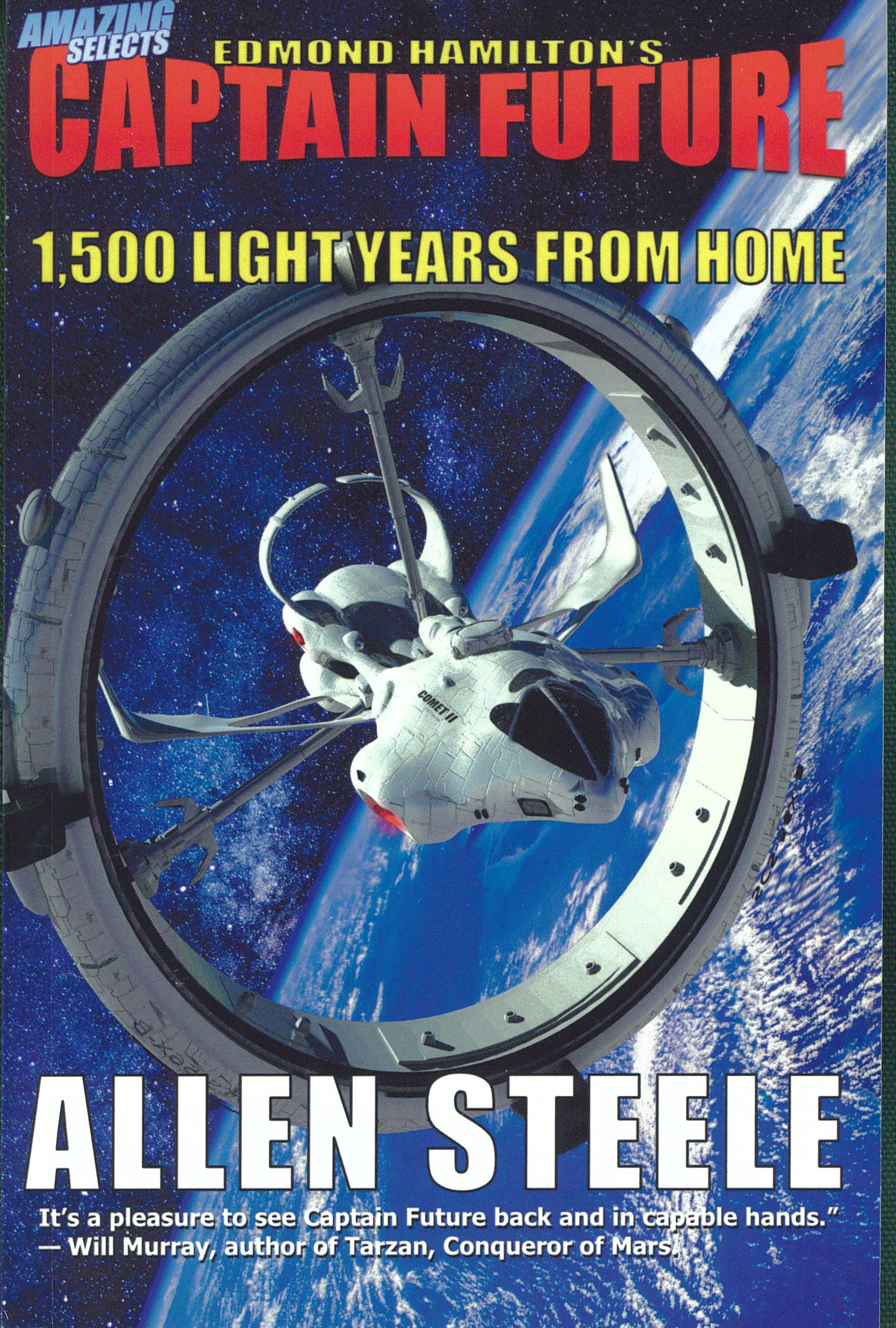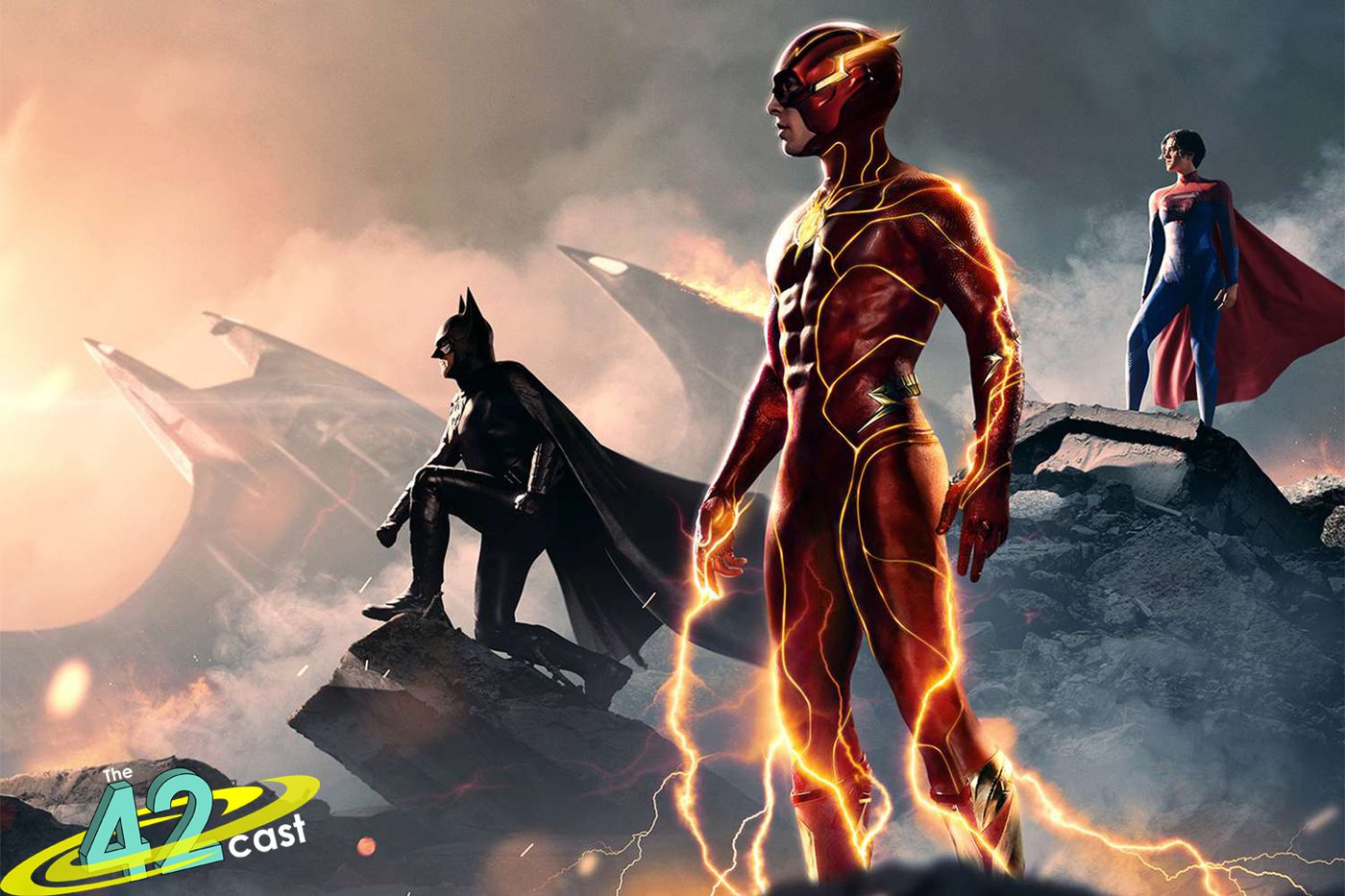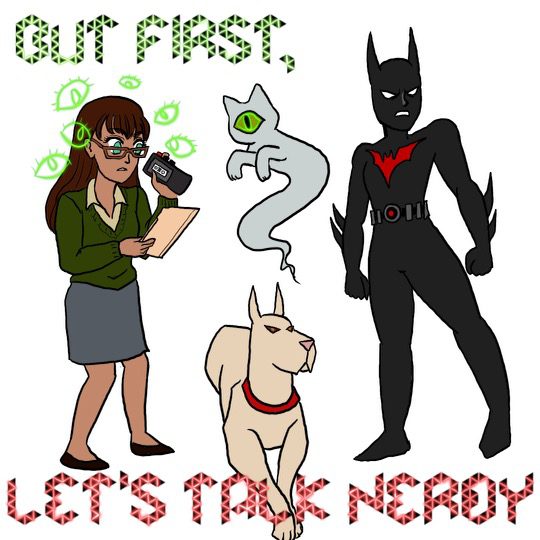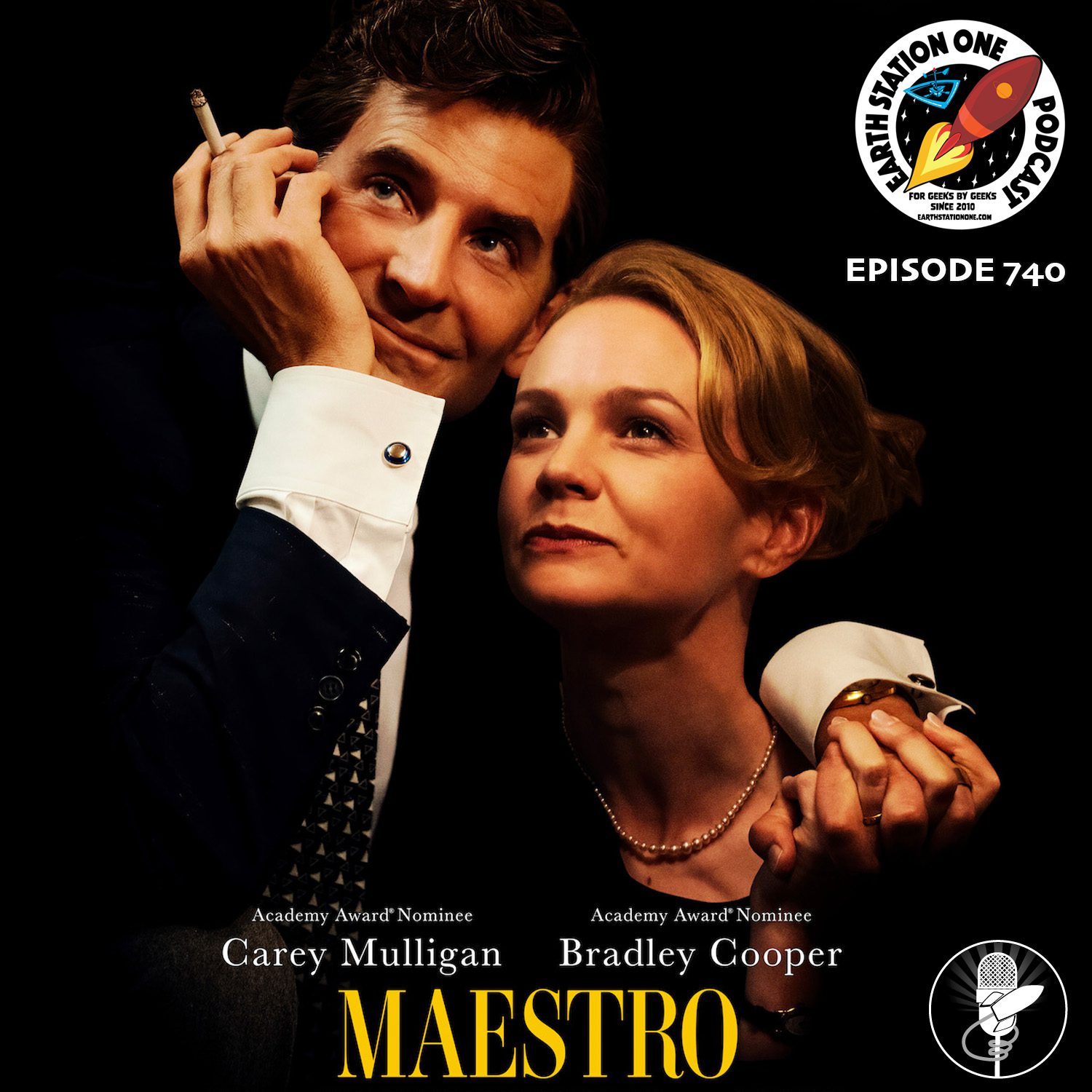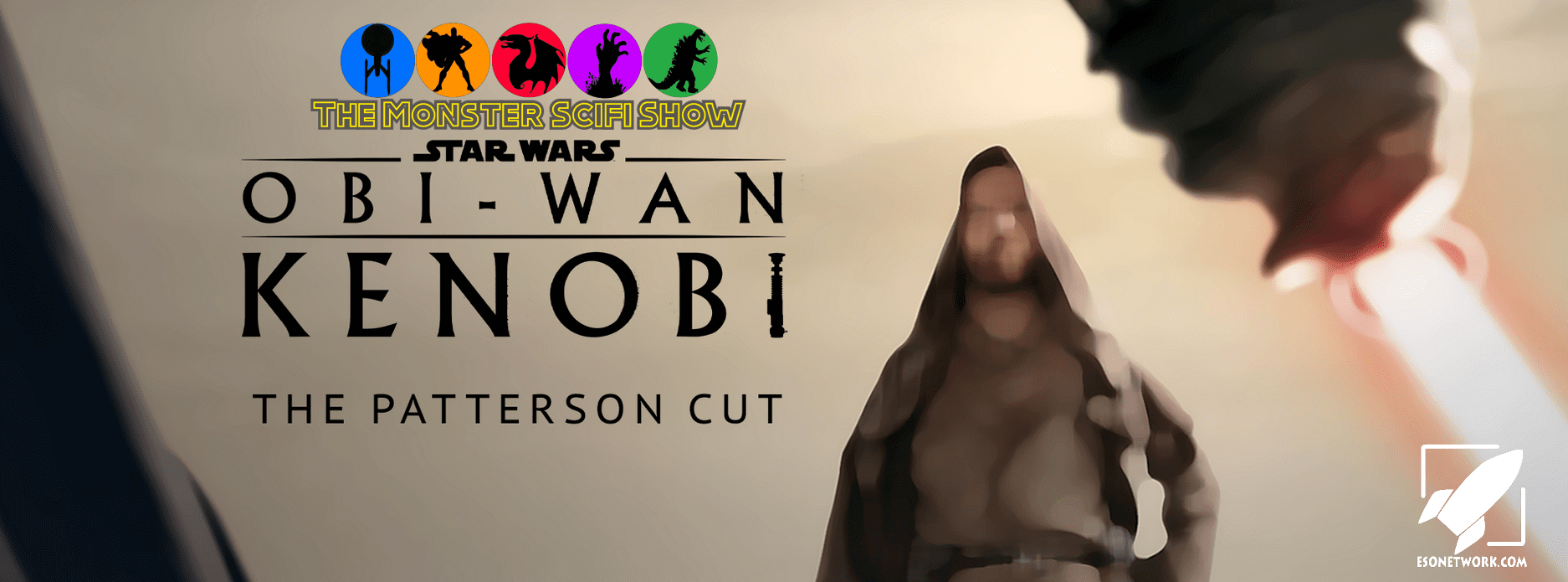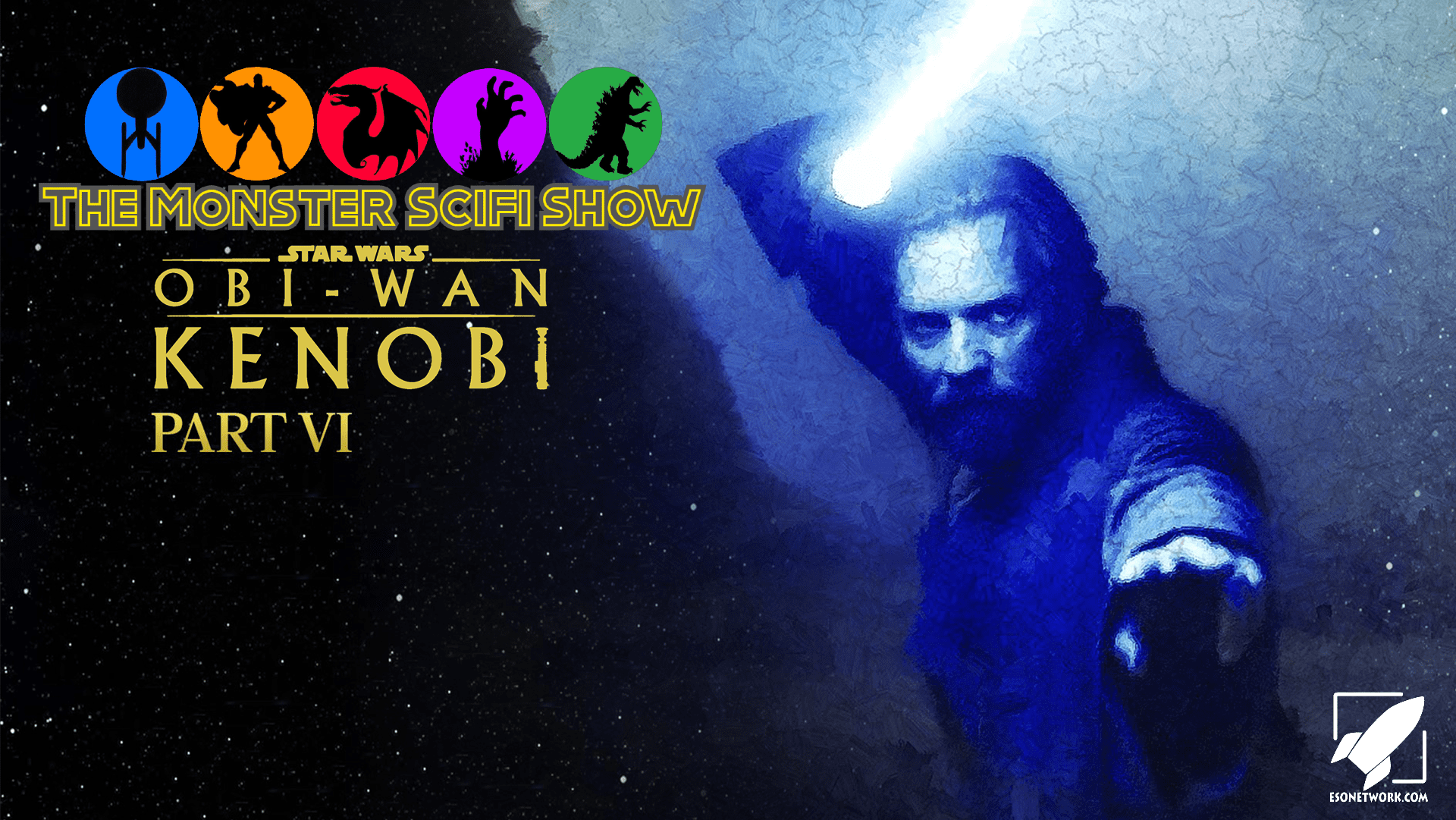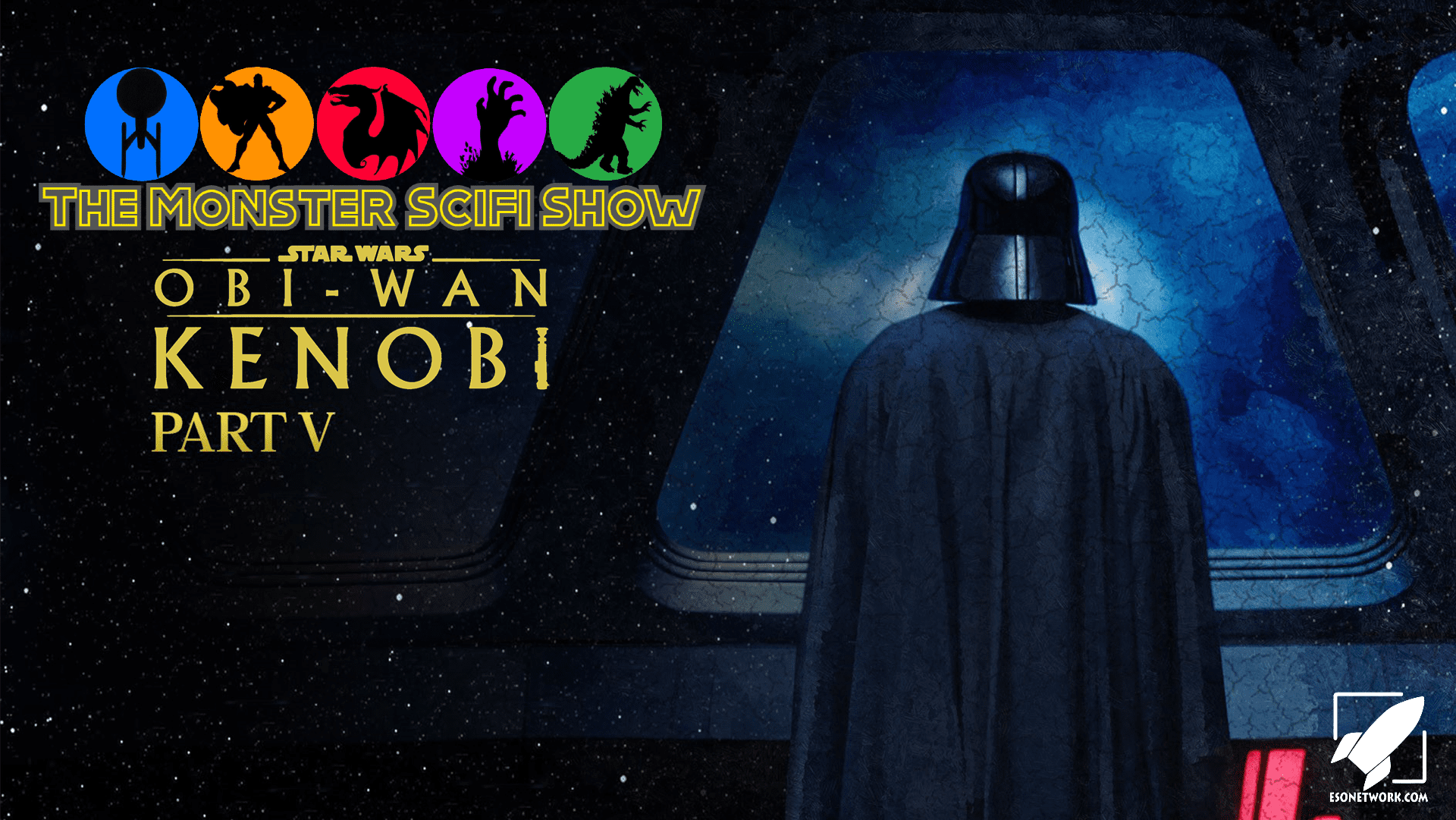 Big Finish’s popular range of stories told from the point-of-view of the companions returns with this box set, focusing on companions that traveled with the first Doctor. The box set contains four stories told from the points of view of Susan, Vicki, and two from Steven. The reason for Steven getting two is that they wanted to wrap up the trilogy that started with The War to End All Wars. There are minimal extras with only The Locked Room having an interview at the end where the producer and writer sit down to discuss the story. The set also shows the versatility of the Companion Chronicles format by utilizing the narrative element in different ways in each story. As a result, this box is a representation of the Companion Chronicles as a whole and if a new listener finds these stories entertaining they definitely ought to go back and pick up the earlier releases in the range. From this point, the review will look at each story individually before summarizing the box as a whole.
Big Finish’s popular range of stories told from the point-of-view of the companions returns with this box set, focusing on companions that traveled with the first Doctor. The box set contains four stories told from the points of view of Susan, Vicki, and two from Steven. The reason for Steven getting two is that they wanted to wrap up the trilogy that started with The War to End All Wars. There are minimal extras with only The Locked Room having an interview at the end where the producer and writer sit down to discuss the story. The set also shows the versatility of the Companion Chronicles format by utilizing the narrative element in different ways in each story. As a result, this box is a representation of the Companion Chronicles as a whole and if a new listener finds these stories entertaining they definitely ought to go back and pick up the earlier releases in the range. From this point, the review will look at each story individually before summarizing the box as a whole.
The Sleeping Blood
Blurb: When the Doctor falls ill, Susan is forced to leave the safety of the TARDIS behind. Exploring a disused research center in search of medical supplies, she becomes embroiled in the deadly plans of a terrorist holding an entire world to ransom – and the soldier sent to stop him.
Review: Stories set before the Doctor’s first televised adventure, An Unearthly Child always run the risk of having little consequence. This is because they can’t develop the Doctor and Susan beyond the point of that first episode, where the Doctor is depicted as being something of a selfish jerk and Susan is a high-strung teenager. Their adventures tend to be a bit more low-key as a result, dealing with problems more personal to the TARDIS crew rather than anything grand on the planetary or cosmic scale of things. The Sleeping Blood tries to be more ambitious, but is hamstrung by it’s tie-in to those early days of the series.
The basic plot idea is strong. It’s a world where nanites are used for all medical treatments, but this also makes the population susceptible to a terrorist hacker known as The Butcher. Susan is thrust into this situation when the Doctor is accidentally poisoned and Susan must take the TARDIS to location after location searching for a cure. This puts Susan in the uncomfortable position of making the decisions and works hand-in-hand with this being a Companion Chronicle, making the story about Susan and how her decisions affect what happens on this planet. This also allows for some of the world building that made the classic series of Doctor Who so great as the story gives Susan time to explore the new environment, deduce the situation, and determine if this is the right place for her to find the aid that her grandfather needs.
Where the story fails is in execution. People’s motivations and decisions seem questionable. For instance, why would soldiers hunting a terrorist in a building automatically trust a girl that they find there who can’t account for herself? The Butcher’s own motivations are tacked onto the ending as a coda, but it’s too little, too late. Day is clearly trying to make his own political point with The Butcher, but the story that we’re given for why he is the way that he is does little to justify or explain his actions. After all of this, Susan seems to have an epiphany about the role that she and her grandfather can play, but instead of doing something with that the story just abruptly ends. It feels very unsatisfying almost as if the story was cut short by an editor who didn’t want to develop Susan’s character too far, but it left the story feeling like it lacked something. There were actions that Susan could have taken at that point, which wouldn’t have deviated from her character as established, but would have made for a more satisfying resolution.
On the production side, the execution is more favorable. Carole Ann Ford gives a predictably good performance as Susan. She also plays the voice of the research lab’s computer and does that in such a charming way that it’s fun to listen to. Her performance as the Doctor seems to have slipped somewhat since her earlier Companion Chronicles, but thankfully she isn’t required to speak too many lines for the Doctor. Darren Strange is acceptable as Kendrick, but where he fails is as the Butcher. At first the Butcher sounds like someone who’s voice has been treated to keep his identity from being known, but then when the characters come face-to-face with the Butcher the same voice is used, showing that that is his real voice. It’s just too deep and distorted-sounding to be someone’s actual voice, and it really huts the suspension of disbelief. The music is used to good effect, adding tension, drama and surprise to scenes. There’s also a rich audio soundscape required to aid the imagination of the listener in realizing the story.
6/10
The Unwinding World
Blurb: Office life is tough, the commute is a grind, nothing works quite as well as you’d like. Vicki seems to remember things being better once, before the little flat. It’s time she put some excitement back in her life. It’s just a shame the Doctor can’t help.
Review: This story really showcases the versatility of the Companion Chronicles format. Unlike most Companion Chronicles, where the character is relating the story from some future time, this story is a conversation between Vicki and a robotic face for the company that she works for known as Connie. That may sound like a boring basis for a story, but author Ian Potter uses this two-hander to depict a tense battle of wills between Vicki and Connie with the lives of the entire TARDIS crew at stake. As a master of twist story-telling, Potter keeps things interesting by subverting the listener’s expectations at least twice during the course of the story, allowing for dramatic reveals that cause you to review the entire conversation in light of the new information.
The story of the TARDIS crew arriving in a world with a corrupt regime and working to change it has been done so many times that this story would be boring, except that the format gives it an immediacy and a different perspective than those stories typically have in Doctor Who, which is part of what keeps it fresh. There are aspects of the story that don’t make sense, but Potter uses the idea of the unreliable narrator to fix the plot problems. At the end, the listener may not have heard the entire truth about what’s going on and therefore any plot problems can be attributed to the unreliable source, which is a very clever way of making sure that a story works. As with most Who there are also some interesting themes about the dangers of conforming too much to societal norms and the harm of disliking the unlike, but used in a unique enough way to actually give the story some real impact that most stories with those themes no longer have.
From a production standpoint, this helps to address the main issue with most Vicki Companion Chronicles. Maureen O’Brien typically does a very poor job of performing as the other TARDIS crew members. Potter dispenses with that by having her speak only Vicki’s lines, and O’Brien does a fantastic job as always of sounding like her teenage self. Alix Dunmore also does a fantastic job as the faceless corporate entity, Connie. She sounds just human enough while also sounding inhuman enough that she could either be a robot or a passionless human who has completely subsumed themselves in her work. The actions of Ian, Barbara, and the Doctor are either described by Vicki, related through a series of sound effects describing what is happening as Vicki is having her conversation with Connie, or described through the dialog with other people that the character is with. Some may find this format off-putting, especially in the case of the Doctor who is mostly teamed up with another character in the story who is constantly describing what he’s doing even though there’s no reason to do so other than to relate his actions to the listener. On the other hand, this gives the story an immediacy that most Companion Chronicles lack. Since they’re usually told through narration, the character feels removed from the story and the tension and danger is lacking. The Unwinding World maintains the tension, having everything happen with the present, which keeps the listener enmeshed in the story. It’s impossible to say more without giving away too much of the story, but The Unwinding World is a very creative and clever story that makes a fantastic addition to the Companion Chronicles range.
9/10
The Founding Fathers
Blurb: The TARDIS lands in Leicester Square in the summer of 1762. When the Doctor, Steven and Vicki find themselves locked out of the TARDIS, only one man can possibly help them. But the American, Benjamin Franklin, has problems of his own…
Review: One of the great aspects of the Hartnell era were the historical stories. They made history “real” for the audience and often had superior drama to the science fiction stories of the time. The Founding Fathers is a story in that vein. Although the title is a bit of a misnomer, Benjamin Franklin is the only founding father in the story. It’s a story about the Doctor and his friends getting stuck in 1760’s England and needing to call upon the help of Franklin to get back into the TARDIS. There’s a lot of clever character interaction as the Doctor, Vicki, and Steven have to stay in one place for a while and they get involved in the intrigue surrounding Franklin in this period of time. The story leads to a surprising cliffhanger that changes the tone for the second episode and makes one wonder how the Doctor will be able to resolve things with history intact.
The story is related by Steven to his granddaughter, Sida and is a sequel to the Companion Chronicle, The War to End All Wars. In this part of the story, Steven is trying to convince Sida that the copy of the Doctor’s brain that exists after the events of the TV story, The Savages shouldn’t be allowed to stand for election. Unfortunately, the story that he tells only weakly makes his point and relies on information that isn’t available to the listener until the end, making one wonder why Steven is relating the story about Franklin at all. Ultimately the whole story seems pointless as the framing sequence leads to its ultimate conclusion. That doesn’t mean that it’s completely pointless. The copy Doctor critiques Steven’s rendition of Benjamin Franklin, stating that his accent is too exaggerated and generally taking issue with the way that he relates the story, poking fun at criticisms made against Doctor Who in general and The Companion Chronicles specifically. The character of Steven’s granddaughter, Sida, is also fleshed out a bit more making her a more nuanced character who may one day hold her own with the Doctor, should he ever return.
Purves is a true delight as Steven. His voice has barely aged and he does a fantastic job playing the astronaut. His performance as the first Doctor remains arguably the best of anyone’s and there’s no dispute that he’s clearly got the performance down even if his voice is a bit off. His Benjamin Franklin has a bit of an overblown American accent, but no worse than most Brits can manage. Alice Haig develops Sida into a more assertive character, and it’s nice to see her getting her own character arc. Sida displays some of the hot-headedness that Steven used to have when he traveled with the Doctor and it’s interesting to see that come up in the later generation. Director Lisa Bowerman also sneaks in a performance as Abigail Holt, Franklin’s lover. Bowerman’s an old hand at playing the British working class in history and here she’s able to present Abigail as a whole character and one with a secret that the time travelers must unravel. Bowerman subtly hints at the secret with her performance, and like any good story an astute observer should be able to tell what’s going on before it’s revealed within the story. Once again, a Big Finish story boasts a strong soundscape with the sounds of storms, boats, jangling coins, doors opening, the TARDIS background hum and more. All of this combines to make The Founding Fathers one of the stronger stories in the range and a great depiction of a Hartnell historical with plenty of intrigue, but made perfectly for the length of the Companion Chronicles format.
8/10
The Locked Room
Blurb: Steven Taylor left the Doctor and the TARDIS to become king of an alien world. But it’s now many years since he gave up the throne and went to live in a cell in the mountains, out of sight of his people. He’s not escaping his past – quite the opposite, in fact. As his granddaughter, Sida, is about to discover…
Review: Sometimes there’s a story that can be described with only one word, and that word is “fanwank”. It’s clear that Simon Guerrier was under some pressure to get the rest of the “Steven Trilogy” completed for this box set. He says as much in the interview contained on the last disc in this set. It also seems that when coming up on a brick wall for the plot that he decided to just throw in as many links to other stories as he could in the hopes of elevating this ending into something more meaningful than it actually is. Not only is this the end to the story that started in The War to End all Wars, but it’s also a continuation of another of Guerrier’s stories, The First Wave as well as a tie-in to the television story The Tenth Planet. The tie-ins make little sense, trying to explain things that didn’t require an additional explanation and creating a threat that cheapens the ending of a previous story where that threat first appeared.
The purpose of The Companion Chronicles is to tell stories about the Companions. The series has rarely delved into what the companions did after they left the Doctor, unless this is mentioned as part of the story that they’re narrating. When it was done in the past with The Time Museum, it was a story about how Ian Chesterton had grown as a person after his time with The Doctor. One would expect no less from this story, taking place entirely in Steven’s life since he left the TARDIS. Yet, he’s upstaged by Sida, his granddaughter and an invention of author Simon Guerrier. Steven doesn’t do much of anything in the story beyond the initial setup. He’s there as a passive observer making comments, but never acting. To add insult to injury, the Doctor is brought into the story and is also made little more than a plot contrivance to cause the action to further along. When the ending comes there’s a deus ex machina of an explanation that leaves both Steven and the Doctor in the dust and makes one wonder why this was even called a Companion Chronicle instead of The Sida Adventures. The threat itself is presented as a mustache twirling one-dimensional villain, which also keeps from elevating things beyond a very surface level. It creates a threat that needs to be vanquished, but there’s no real development that happens from its appearance.
Even more disappointing is that this is a missed opportunity to develop the world of The Savages. Guerrier has said that he campaigned to be able to tell the tale of Steven’s life after he left the Doctor, but little thought is given to developing the world that Steven made his home. Gone is any mention of the two classes that lived there before and no story is given as to how Steven integrated the two groups. The planet and its government seem indistinguishable from any generic human colony world from any science-fiction series. The world is never named and maybe that’s a good thing because there doesn’t seem to be an interesting or compelling reason to ever go there again.
The performances are all top notch as ever. Purves plays Steven as an older and wiser man and brings some world-weariness to the role after all the difficult things that he’s witnessed and decisions that he’s regretted. His performance as the Doctor is the same great performance that he always gives. Alice Haig once again impresses as Sida. She plays Sida here with a real fire. She goes from an exasperated bureaucrat to someone fiercely determined to protect her people and clever enough to outwit an invading alien. It might be a difficult job for anyone else, but Haig pulls it off with ease, making her character very likable. They do something clever with the music. The first episode plays some sedate alien-sounding sounds that wouldn’t have been out of place in the Hartnell era and then moves into a fast paced piece in the second-half that wouldn’t be out of place in the modern series. It’s almost a bridge between the two eras from then to now, since that would be the soundtrack style if Steven were to ever appear in the current series. It’s a beautiful complement to the normally top-notch soundscape. At the end, this story is a mixed bag. The actors and director try to salvage an impossible script that keeps trying to distract the listener from realizing that there’s really no plot and partially succeed, but this is easily the worst story in the set.
Recommendation: The Companion Chronicles are one of the most underrated series in Big Finish many ranges of stories. They’re experimental and innovative and they’re well worth a listen by anyone who hasn’t yet given them a try. This set is something of a microcosm of the various stories possible from the Companion Chronicles and is a good starting point for anyone who might be interested in the range. Two of the four stories are excellent and the remaining two are at least better than average. The last two stories in the set are enhanced by familiarity with the excellent story, The War to End all Wars, but do not require it. Still, the hits here are worth the misses and I strongly recommend picking up this set, especially if you’re a fan of the Hartnell era.
7/10
2015
Audio Drama
Big Finish Productions
Directed by Lisa Bowerman
Produced by David Richardson
Written by Martin Day (The Sleeping Blood), Ian Potter (The Unwinding World), and Simon Guerrier (The Founding Fathers and The Locked Room)
Runtime Approx 4 Hrs.











